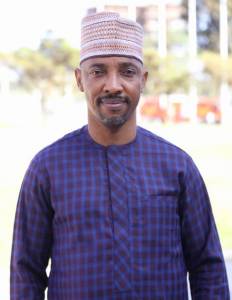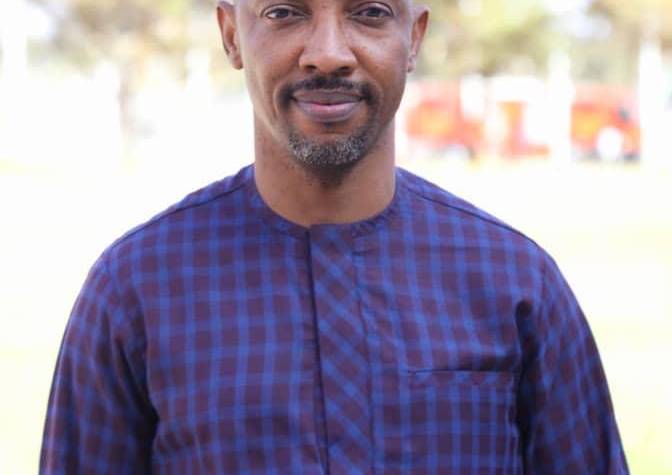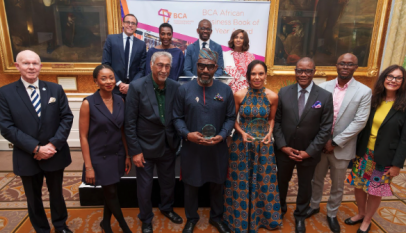INTERVIEW | Africa’s multiple partners changing dynamics of Africa-Europe relations – Edwin Ikhuoria
Edwin Ikhuoria, ONE Campaign’s Africa executive director, speaks about the changing dynamics of Africa-Europe relations and why a balanced relationship is no longer far-fetched.

By Adam Alqali
Newspage: The period leading to the 6th AU-EU summit in Brussels was characterized by a sense of optimism about the summit ushering in a new chapter in the deeply asymmetrical relations between the duo. What is your assessment of the summit’s outcome?
Ikhuoria: It is important to clarify that the optimism wasn’t mutual. The summit was supposed to happen in 2021 but didn’t because many African leaders saw no need for the summit when their countries were preoccupied with efforts to respond to the Covid-19 pandemic. They simply ignored the European Union.
This was also because Europe, which had the capacity to support Africa’s fight against the pandemic, simply ignored African leaders’ call for support and focused on their countries. Africa was simply snubbed by Europe yet there was a push by the European Commission for the summit to be held in 2022 and it happened because of a lot of push from Europe. However, it was only the African leaders that viewed it as an opportunity to recalibrate their relations with the EU.
Prior to the summit, there was a draft summit outcome or communique that was circulated in which Europe advocated an Africa-Europe alliance which was however rejected by the African leaders who viewed an alliance as a kind of exclusive relationship between Africa and Europe. This was because African leaders understood that beyond Europe, the continent had other partners which made going into alliance with Europe akin to excluding other partners.
Talking about the outcome of the summit, of course huge figures were announced as support to Africa by Europe but that wasn’t the first time such figures were being announced so the question now is did Europe really respond to Africa’s aspirations?
The major one was the Intellectual Property (IP) waiver for Covid-19 vaccines which Europe vehemently declined to grant even though it was on a temporary basis that African leaders were asking for the waiver so as to allow for vaccine production in Africa to end the pandemic. Europe didn’t oblige them, instead they said the waiver conversation should happen at the World Trade Organization (WTO).
Yet, I believe the major outcome of the summit was the realization that African leaders truly knew what they wanted and were emphatic in making their demands. The Europeans were no longer the ones dictating the agenda of the summit and African leaders proved were not there to be dictated to; instead, were assertive about their demands and getting the necessary attention.
Newspage: Before and during the summit, young African and European activists under the aegis of ONE had campaigned for “a smarter and stronger” Africa-Europe partnership to African and European leaders. Did your campaign achieve anything despite the quite discouraging outcome of the summit?
Ikhuoria: Yes, it did because this time around, young people were given the opportunity to articulate their viewpoints on what the future of Africa-Europe relations should look like, which was a major shift from how this partnership had progressed in the past. Until now it was majorly politicians and policymakers that were shaping the agenda, now young people are coming into the picture and reshaping the future of Africa-Europe relations.
I believe the fact that the voices of young people were heard was one of the positive outcomes of the summit. The youths had a ‘Meet the Leader’ session which brought together young African and European activists as well as European and African ambassadors for wide-ranging conversations on how the youths wanted the future of Africa-Europe relations to be; they had the opportunity to express their demands to key decision-makers at the European Commission.
Newspage: Looking at how the pandemic has deepened inequalities and pushed millions of Africans into extreme poverty, how would the failure of Europe to grant this much desired waiver affect the continent’s fight against the pandemic?
Ikhuoria: Recall that the first request for the IP waiver was made at the WTO by South Africa and India when Covid-19 vaccines were first produced. Since then millions of deaths had occurred in the Global South yet the apocalyptic prediction that the corpses of Africans would litter the streets, didn’t eventually happen.
If the waiver had been granted at the time the request was made, vaccine manufacturers in the Global South would have been able to mass-produce those vaccines and so we could have avoided a lot of deaths. The African leaders were not asking Europe for vaccine donation; instead were asking for an IP waiver to allow African manufacturers produce the vaccines.
They wanted the continent to achieve autonomy in the production of vaccines so as not to continue being helpless and dependent on foreign vaccine manufacturers to safeguard the lives of their citizens during pandemics. Yet, Europe responded with a paternalistic mentality, telling Africans that what they think they needed wasn’t actually what they needed.
Newspage: How realistic is the idea of achieving a ‘balanced’ or rather ‘equal’ relations between Africa and Europe?
Ikhuoria: Before now the relationship wasn’t balanced but Africa is now dealing with multiple partners like China, Russia, US and the Middle East and so Europe is no longer that exclusive partner that had always had its way. So, the dynamics of Africa-Europe relations is already shifting because if Europe doesn’t offer a balanced partnership to Africa, other countries or blocs will do so. As such, a balanced relationship isn’t far-fetched anymore, thanks to Africa’s multiple partners.
Editor’s note: This interview has been edited for length and clarity.

















